If you’re like most drivers, you probably don’t think about your car’s oil filter until it’s time to change it.
And, if you’re like most drivers, you probably have no idea what brand of the oil filter is installed in your car. That’s a big mistake.
Some oil filter brands are better than others. In this blog post, we’ll tell you which brands to avoid and why. So, read on and learn more!
The oil filter brands to avoid are the following:
- Fram Oil Filters
- Frantz Oil Filters
- Supertech Oil Filters
- Astrofilters
- Manufacturer Brands of Oil Filters
Using the wrong oil filter can have a negative impact on your car engine. These brands of oil filters do not work as well as they should because the impurities are not filtered out by a clean and filtered engine.
This can lead to a build-up of deposits on the engine, which can eventually cause damage. In addition, using the wrong oil filter can also cause your engine to run less efficiently, resulting in lower fuel economy.
If you’re not sure which oil filter is right for your car, consult your owner’s manual or ask a qualified mechanic. Using the wrong oil filter is a gamble that’s not worth taking.
Now let’s take a closer look at each to understand why they are on our list of the oil filter brands to avoid.
What's in this post?
Which are Oil Filter Brands to Avoid
As a car owner, it’s important to be aware of the importance of the oil filter. The oil filter’s main purpose is to remove impurities from the engine oil before it circulates through the engine.
The oil filter is the most important component in an engine because it keeps the engine lubricated and prevents friction between its parts.
Over time, dirt will get into the oil which will increase friction. The downside to this is that dirty oil can also cause higher emissions from your car’s exhaust pipe.
To avoid these issues, you should keep a close eye on how often you change your engine oil and replace it when necessary.
That’s why it’s important to change your oil filter regularly – typically every 5,000 miles or so.
Also, for this reason, it is important to use a high-quality oil filter that can trap contaminants effectively.
Unfortunately, many people try to save money by using cheap oil filters. However, these filters often don’t work as well and don’t last as long as higher-quality filters.
As a result, they can actually end up costing you more money in the long run. If you want to protect your engine and keep it running smoothly, it is best to invest in a good quality oil filter.
There are a few brands of oil filters that we recommend avoiding.
Fram Oil Filters
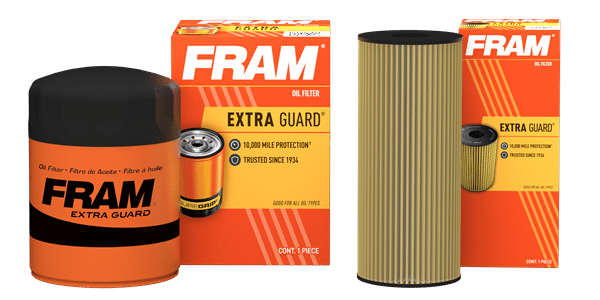
There are a few oil filter brands to avoid when shopping for your next oil change. Fram is one of them. Fram is a low-cost filter company that manufactures its filters through Allied Signal, which was acquired by Honeywell in 2011.
Fram’s focus on cost savings has led to them being one of the most popular filter brands among consumers.
However, this focus has also resulted in some quality issues. In particular, Fram has been known to use lower-quality materials in their filters, which can lead to premature wear and tear.
Additionally, Fram’s manufacturing process is not as rigorous as that of other filter companies, meaning that their filters may not meet the same standards of quality.
The reason why Fram oil filter is bad:
- The filter canister has not had enough pleated media in it.
- The company made the drain-back valve out of metal and not a spring.
- Unlike other filter brands, the outer wall media appear to be thinner.
- A media-seal engine’s seam can split open and unfiltered oil can circulate inside the engine.
- There are a few different types of Fram designs that have problems threading the filter base, which will lead to fewer impurities filtered.
- Paper end discs are not properly centered, which causes leakage.
- The paper filtration is of poor quality and the curing process was inconsistent.
Frantz Oil Filters
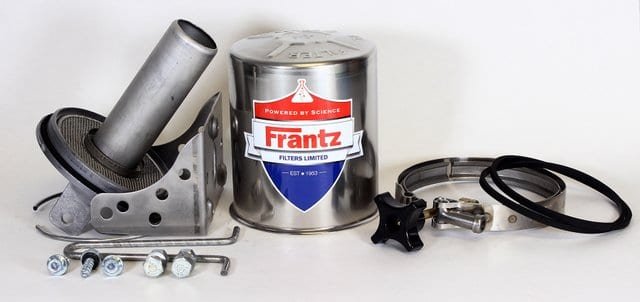
Frantz Filter Company was started by John Frantz and focuses on cleaning automotive oil. In 2014, Lubrication Specialists, Inc. acquired Frantz Filters.
This brand used to be known for its high quality and good service, but after the main company sold it to another one, the quality of the products and service got really bad.
One car owner believes that the Frantz oil filter is an aftermarket product in which to replace a canister with any engine manufacturer.
Supertech Oil Filters
Supertech is a famous name in the market. But why were they made on our list of oil filter brands to avoid?
Supertech oil filters are a popular brand that uses paper cover plates. Although they are of the same quality as Fram oil filters, Supertech is more affordable in price.
Walmart used its economic clout to promote Supertech and partnered with Wix so they could sell oil filters as a response to competition.
However, the Supertech oil filter creates a leakage issue due to the rusting problem in this type of brand. As a result, these oil filters do not work well and do not filter the oil correctly. This allows the oil to flow inside the engine without being filtered.
The worst part is, because of the bad quality, before even reaching 5,000 miles, you might notice oil sprays all over the engine. In some cases, it might also damage the engine’s pistons and cylinder walls.
As a result, you would have to replace the engine entirely. Not only is this bad for your car, but it’s also bad for your wallet. So, if you’re looking to save money in the long run, it’s best to avoid using low-quality oil filters.
We also put in an article about who makes Supertech oil filters, be sure to check it out before making a decision.
Astrofilters
Astrofilter is one of the oil filter brands to avoid when changing your car’s filters. Although these filters claim to have many features that other brands do not, the size is unfortunately a major drawback. The bulky design makes it difficult to fit into any car and often results in oil spilling and leakage.
Additionally, the filters require maintenance after reaching a certain distance, which can be irritating for users. Furthermore, because of the size, it is harder to check the filtration and clogs.
Overall, the quality of these filters is worse than other brands in the same price range, making it not worth settling for less.
Manufacturer Brands of Oil Filters
You might not know this, but many car manufacturers outsource the production of their oil filters to the lowest bidder. Car manufacturers put their brand names on the filter canisters.
As a result, the quality of these filters can vary significantly from one brand to the next.
There’s no doubt that oil filters are bad. They overprice their products and are barely able to do their job, even the standard market filters do the same job as them. That’s why we put them on oil filter brands to avoid, you can literally get a better quality oil filter at the same price!
Difference Between Good and Bad Oil Filters
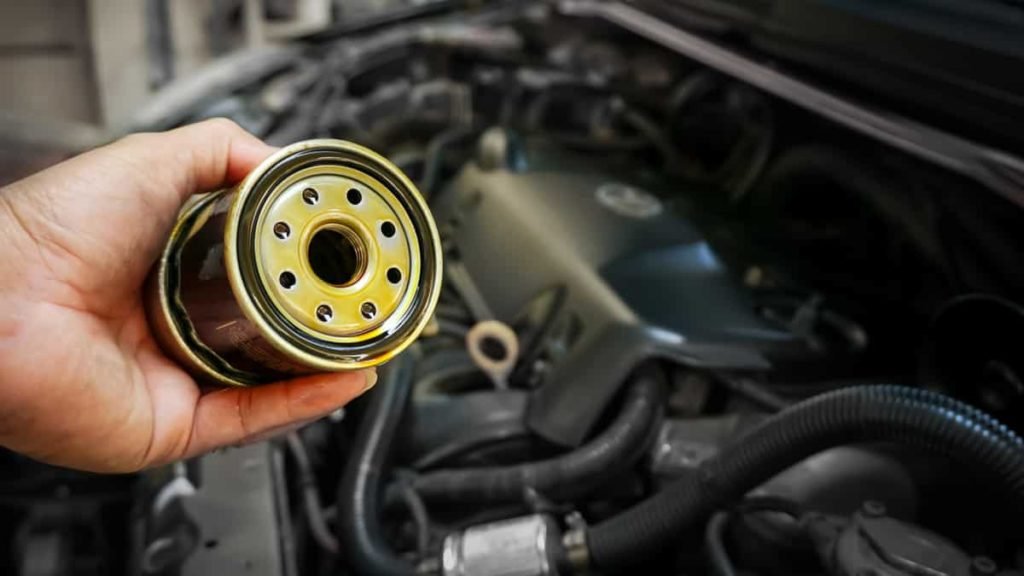
When it comes to oil filters, there can be a big difference between good and bad brands. Some oil filter brands are known for their high quality and durability, while others are known for being less reliable.
Car owners know that having a properly functioning oil filter is important for the longevity of their vehicles. However, not all oil filters are created equal. Some filters do a better job of trapping contaminants than others.
In this section, we’ll explain the difference between good and bad oil filters. We’ll also give you tips on how to choose the right filter for your car. Understanding the difference between them will help you make an informed decision about which oil filter brands to avoid and which are good.
Price
Price isn’t always an indicator of quality, but when it comes to oil filters, it’s a pretty good rule of thumb.
In general, any filter that costs less than $5 is probably not going to be great, and those in the $5 to $15 range are the sweet spot.
Filters that cost more than $15 are usually made by the manufacturers of your vehicle and will last longer, but they also run the risk of being overpriced due to the brand’s reputation.
So, when you’re looking for an oil filter, it’s important to consider both price and quality to find the best option for your needs.
Filter Media
In general, cheaper oil filters will not last as long as more expensive filters because they have less filtering media.
The filtering media is the part of the filter that actually does the work of filtering the oil. A higher-quality filter will have more filtering media, which means that it can trap more contaminants before it needs to be replaced.
If you buy a cheap filter with very little filtering media, you may find that it needs to be replaced more often because it will fill up with contaminants more quickly.
In contrast, a more expensive filter with more filtering media will last longer and provide better protection for your engine.
Anti-Drain Back Valve
One of the most important parts of an oil filter is the Anti-Drain Back valve. This valve ensures that oil that has been filtered through does not drain back into the main tank.
This is important because it keeps the engine lubricated and prevents a dry start, which can damage the engine. A dry start occurs when there is not enough oil to lubricate the engine when it is started.
This can cause the parts of the engine to grind against each other, leading to faster wear and tear, as well as reducing its longevity.
Therefore, it is essential to make sure that the Anti-Drain Back valve in your oil filter is in good condition to avoid these problems.
Weight or build
A high-quality oil filter will typically weigh more than a lower-quality filter made with cheaper materials.
This is because high-quality oil filters use better materials that are designed to last longer. For example, a higher-quality oil filter will typically use thicker paper or pleated cellulose to trap more contaminants.
In addition, the metal end caps on a high-quality filter will be thinner and made of a stronger material such as steel, which prevents them from warping or cracking under high pressure.
As a result, a heavier oil filter usually indicates a higher quality product that will provide better protection for your engine.
Service lifespan
When it comes to oil filters, there is a big difference in quality. Some filters can last for 10,000 miles before they need to be replaced, while others only last for 3,000 miles.
Obviously, the longer-lasting filters are the better option.
Not only will they save you money in the long run, but they will also save you the hassle of having to replace them more often.
If you are looking for an oil filter that will last, make sure to choose one that is rated for 10,000 miles.
FAQs about oil filter brands to avoid
Is OEM oil filter better?
Aftermarket oil filters are cheaper but OEM oil filters have better long-term costs.
What are the two types of oil filters?
There are 2 types of oil filters. The primary oil filter uses a full-flow filtration system, while the secondary oil filter utilizes a medium to the finely-meshed screen.
What are the most common oil filters?
The most popular type of oil filter is the spin-on. This device attaches to your car’s engine using a threaded mount. You rotate it when you take it off or put it back on to protect the internal parts from dirt and additives that can gum up the works.
How often should I change my oil filter?
Many car owners are unsure about how often they should change their oil filters. While it is generally recommended to change the filter every 5,000 miles, there are a few factors that can affect this number.
For example, if you frequently drive in stop-and-go traffic or in dusty conditions, you may need to change your filter more frequently. Additionally, some brands are known to be of lower quality, so it is important to research which oil filter brands to avoid.
In general, changing your oil filter every 5,000 miles is a good rule of thumb, but it is always best to consult with your mechanic to be sure.
Do synthetic oils require a special filter?
Special Oil filters are not necessary with synthetic oil. The major motor oils filter out contaminants well, as they’re manufactured at higher quality levels – meaning you don’t need a special kind of filtration system for your car!
Are all oil filters full flow?
When one oil filter is all you have, make sure it’s a full-flow design. This will remove larger particles from your engine that could be harmful to operating smoothly and efficiently.
However, an alternative type of bypassing system called “solo” usually cannot produce this kind either because they’re designed for different environments with different conditions. This means that some amount remains even after going through the first stage alone!
Should you fill the oil filter?
If you have a large, heavy-duty truck and are pre-filling the filter it will be easier for yourself but if not then don’t worry about doing so.
Changing the oil in smaller cars can be a messy job, but most people who are knowledgeable about doing this can do it without any extra help.
Are all oil filters universal?
It is important to note that oil filters are not universal, as they come with different threads and sizes. In general, it is difficult to say whether a certain type of filter will work with any engine.
Vehicle manufacturers have specific filters that are recommended for their engines, which are based on the weight and other requirements of those engines.
What is the difference between full-flow and non-full-flow oil filters?
A bypass filter is a type of oil filter that captures smaller particles than a full-flow filter.
The increased efficiency of the bypass filter means that it has a lower flow rate than a full-flow filter, especially when the oil is cold.
In most cases, a bypass filter is used in conjunction with a full-flow filter to provide the highest level of protection for the engine. By capturing smaller particles, the bypass filter helps to extend the life of the engine and improve its performance.
Can you reuse the oil filter?
What’s the point in wasting time and money on a disposable oil filter when they’re not designed to last more than one change? The life span of a disposable oil filter is very limited.
They’re only meant to be used once and if you reuse one from an earlier change, there’s a risk that it will clog up before making it into your next scheduled ritual with automotive fluids!
What size are most oil filters?
The 1-Inch size is used on engines with larger oil filter canisters, such as some of our V6s and 8s that have the filters mounted up high.
Is a bigger oil filter better?
There are two key benefits to having a larger filter:
1. More oil capacity in your system, which helps extend the useful life and keep temperatures down;
2. Greater dirt holding capacity. This means that even when the media gets saturated or bypassed due to an excess amount of flow through it (which happens faster with smaller filters), there will still be plenty left over for cleaning purposes!
What oil filter does Ford use?
The Motorcraft filter is the original equipment replacement for Ford vehicles, recommended by them and engineered with high-quality standards.
Can you remove the oil filter without draining it?
Indeed you can change your oil filter without emptying the engine’s contents. The placement of this small, internally-mounted component is untouched by a new replacement and will remain clean for many more miles to come!
Is the hand tight enough for an oil filter?
Oil filters can be tight by hand just fine, but you have to watch it so that they don’t over-tighten and cause leaks or damage.
Who makes OEM Toyota oil filters?
Japanese company Denso manufactures the OEM oil filters for Toyota. When you see a filter from these guys, you say it’s Toyota oil filters.
Who makes JD filters?
The JD filters are made by Donaldson, but many of the fuel system’s proprietary parts come from other manufacturers and get rebranded for use in different boxes.
Is NapaGold made by Wix?
NapaGold is made by Wix, but they use a different paint job to make their filter housing look more appealing.
Who manufactures Purolator oil filters?
In 1986, Bosch acquired Purolator, and the brand is now part of the Mann+Hummel Group. Mann+Hummel is a German company specializing in filtration products, and they continue to manufacture Purolator filters, including oil filters, under the Purolator brand name. Purolator is a respected name in the filtration industry, known for its quality filters.
Conclusion
While it is important to keep your car well-maintained, it’s also crucial that you use quality parts and filters. We hope this article was helpful in informing you about the top oil filter brands to avoid.
It is important to be aware of these brands so that you can make a more informed decision when purchasing an oil filter for your vehicle.
Instead, choose a brand that you trust and that will provide your vehicle with the best protection possible. Remember, not all brands are created equal and it is important to do your research before selecting a filter.

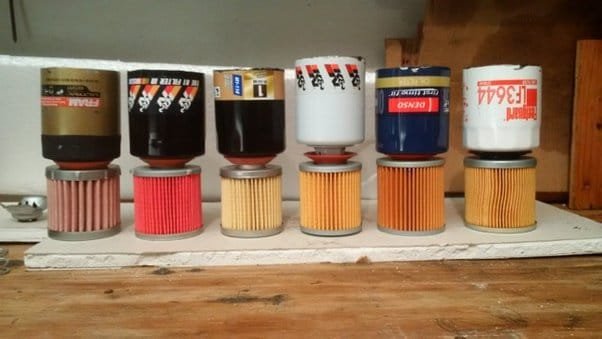

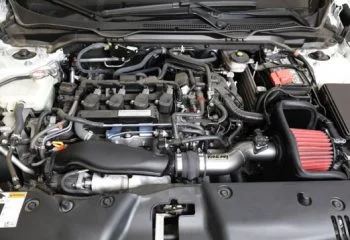

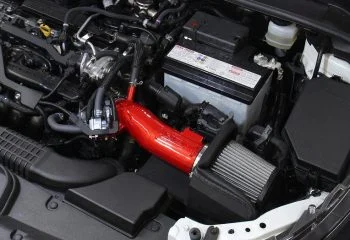
I thought Fram was a reputable name
If you still want to use Fram oil filter, Fram Ultra is the best one.
Confused. In your Motorcraft specific article you report Purolator makes them and they are high quality but here you list Purolator as a brand to avoid and report Mann and Hummel make Purolator. Both articles appear updated to the same date so hoping you can clarify. Are the Motorcraft filters made to a different standard than regular Purolator filters. How do you account for the different claims. Thanks